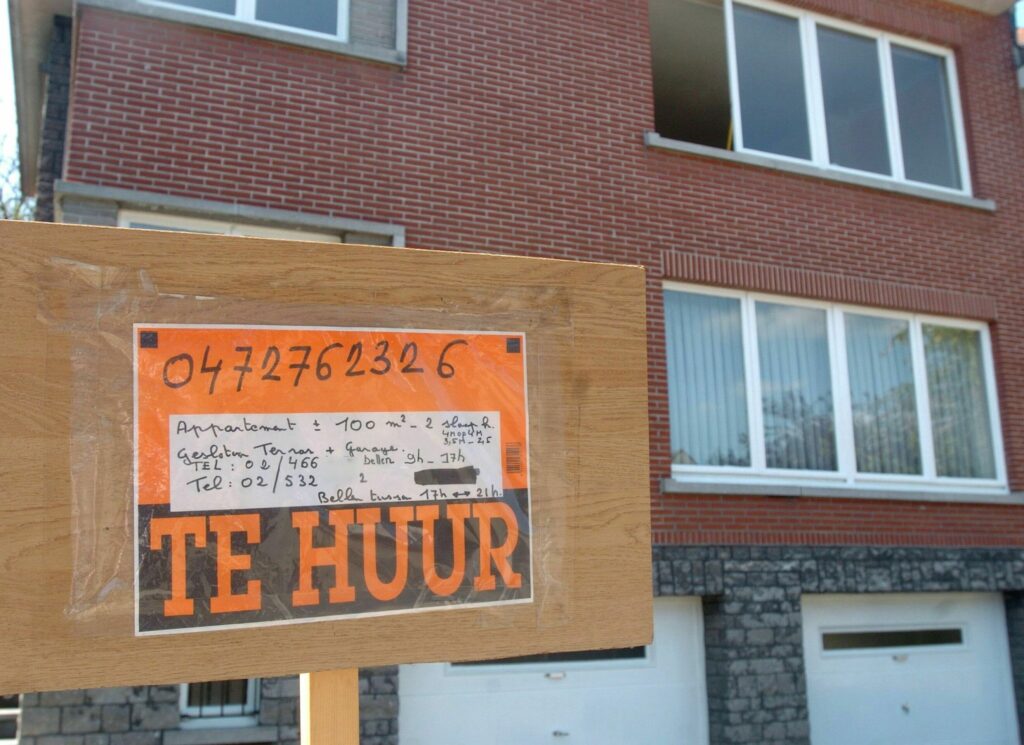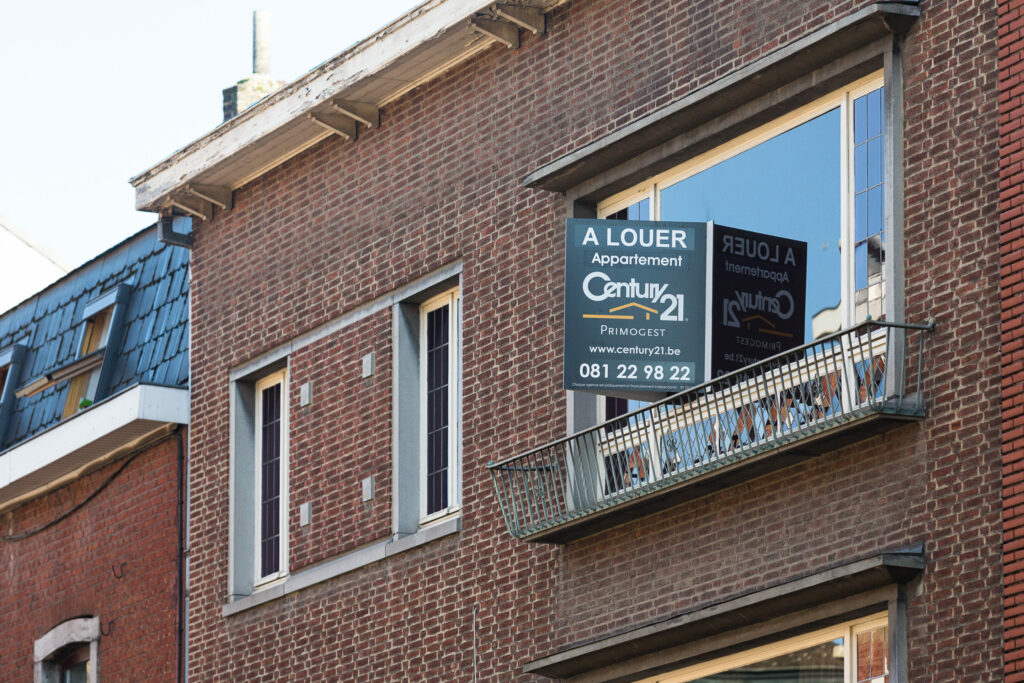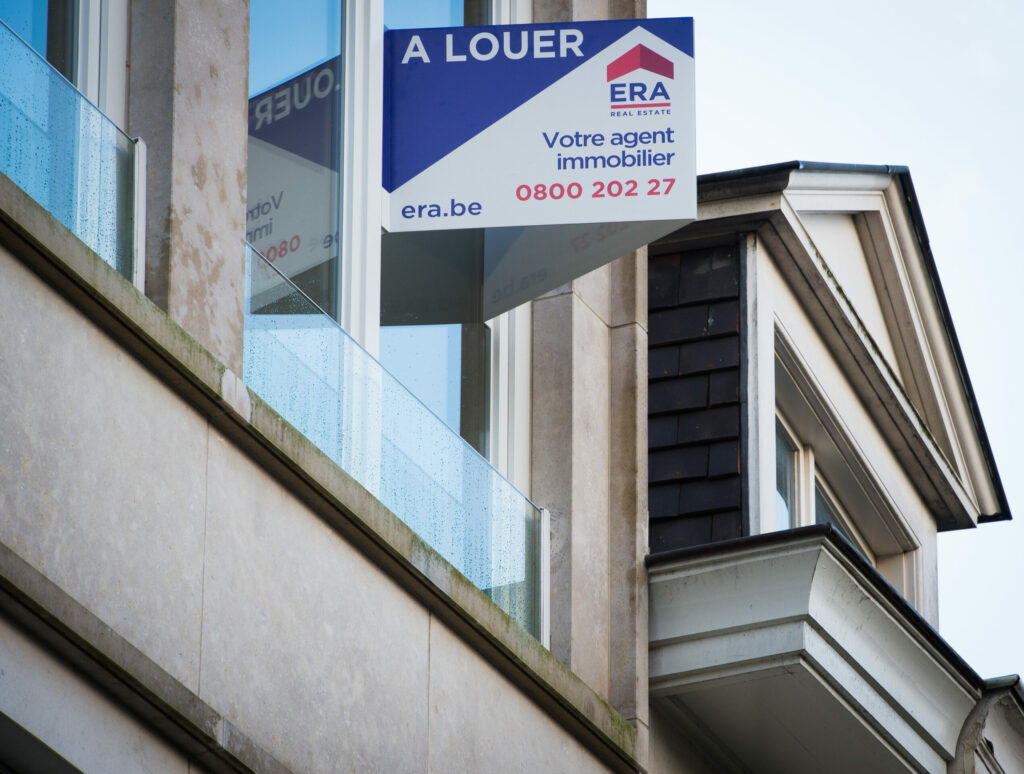To step up the fight against "excessive rents" in the capital's housing market, the Brussels Parliament has narrowly approved (by eight votes to seven) an ordinance by the Francophone socialist PS party to make the region's 'reference rent scale' legally binding.
The parliamentary initiative is the work of PS and Ecolo (Francophone greens), who were joined by Belgium's Workers' Party PTB-PVDA (radical left), Groen (Dutch-speaking greens), Vooruit (Dutch-speaking socialists) and Team Fouad Ahidar (centre-left breakaway party).
"The right to housing is enshrined in the constitution and should be an absolute priority," said Brussels MP Martian Casier (PS). "Our aim is not to attack owners and landlords, but to fight the practices that limit access to the housing market that prevent Brussels residents, especially at the lower end of the rental market, from finding proper housing at a fair rent."
The proposal aims to make the current rent scale (which is only indicative) legally binding. The text was preceded by a series of hearings with representatives of landlords, tenants' associations and experts and was finally approved with a majority of one.
What is 'excessive'?
The proposal activates articles 8 to 13 of Brussels' original ordinance, which was adopted in 2021. These set out the creation of the joint tenants committee, the Commission Paritaire Locative, which rules on whether rents are fair, based on the reference rent scale.
However, as the outgoing Brussels Government failed to reach an agreement on this matter those articles of the 2021 ordinance were never implemented. But on Thursday, the articles that give tenants the right to a rent review and prohibit landlords from imposing unfair rents have been adopted.
The changes seek to combat practices that hinder access to decent housing at a fair price, particularly in the lower segments of the rental market. Landlords would no longer be allowed to charge rents more than 20% above the "reference rent" for their area, as this is considered "excessive." Additionally, houses with substantial issues or defects will be penalised more severely as a result.

For rent sign. Credit: Belga/Herwig Vergult
Tenants who believe their rent falls into this "excessive" category can submit their contract to the joint rent committee for consideration. They can also apply directly to the justice of the peace, who could then impose a new rent.
The group of leftwing parties was able to bring the text to a vote in a plenary session, much to the displeasure of the French- and Dutch-speaking liberals (MR and Open VLD), Flemish right-wing N-VA, Francophone centrists Les Engagés, Flemish Christian-Democrats CD&V and regionalist DéFI.
The plenary featured many questions about the 'reference rent scale' that will be used to calculate "excessive rents". According to MR, among others, these scales are not up to date and refer to the period 2020-2022.
'Hasty vote'
The Brussels Government hopes to update the reference scale using data from the mandatory registration of rental contracts, but it will take years for these to give an overall picture of rental market prices. The Union for the Right to Housing therefore calls for a proper observatory of rents in Brussels to be reinstated.
But PS, Vooruit, Ecolo, Groen and PTB-PVDA do not want to wait for that, fearing that the rental crisis is so critical that immediate intervention is needed. In recent years, rents in Brussels have risen faster than inflation. As a result, there are currently some 30,000 homes with unfair and excessive rents in the Capital Region.
Opposed to this intervention, MR, Les Engagés, CD&V, Défi and N-VA hold up scientific studies which show that while there may be a temporary cooling of the rental market with rent regulation, there will be less investment in the long run. "Owners will abandon the Brussels rental market, which risks creating even greater tightness on the housing market, and poorer quality housing," they said.

Credit: Belga/Siska Gremmelprez
For MR, Brussels MP Louis de Clippele denounced "a hasty vote for political and electoral reasons." He said that PS' proposal is "dangerously close" to PTB-PVDA's positions. "The outgoing Brussels Government is stubbornly forcing through the adoption of an unfinished text with potentially very harmful consequences for both landlords and tenants."
MPs Benjamin Dalle (CD&V) and Mathias Vanden Borre (N-VA) argued that the ordinance cannot be implemented because the rent scale – which serves as the basis of this ordinance – is not in line with real prices on the rental market. "The intention, namely lower rents, is good. But the consequence will be that there will be fewer homes on the rental market, and of lower quality," said Dalle.
Meanwhile, MPs Joëlle Maison (Défi) and Imane Belguenani (Open VLD) highlighted the legal uncertainty and argued that the implementation of the ordinance should be delayed by two years so a more solid basis for the reference rents could first be created.
The proposed ordinance will be discussed in the plenary session on Friday 4 April. If approved, it could enter into force as early as 1 May.

